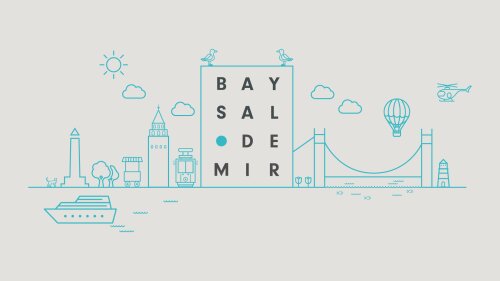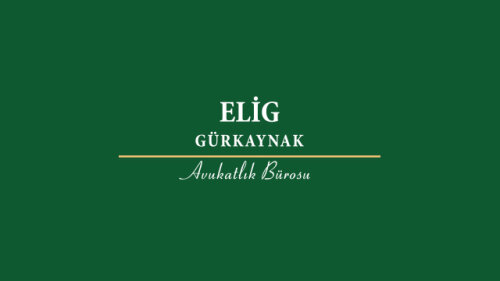Best Art & Cultural Property Law Lawyers in Besiktas
Share your needs with us, get contacted by law firms.
Free. Takes 2 min.
List of the best lawyers in Besiktas, Turkey
About Art & Cultural Property Law in Besiktas, Turkey
Art & Cultural Property Law in Besiktas, Turkey, plays a crucial role in preserving the nation's rich cultural heritage and regulating the contemporary art scene. This area of law encompasses various aspects, including the protection of cultural artifacts, regulation of their trade, and issues related to copyright and intellectual property in the arts. Besiktas, known for its vibrant culture and historical significance, is an area where the intersection of law and art is particularly pronounced. Legal frameworks are designed to ensure that cultural properties are preserved, while also supporting artists and art institutions in navigating the legal landscape.
Why You May Need a Lawyer
There are several situations where individuals or organizations in Besiktas might seek legal advice related to Art & Cultural Property Law:
- Acquisition or sale of cultural artifacts, requiring compliance with local and international trade regulations.
- Disputes over provenance or ownership of art collections, especially those with historical significance.
- Intellectual property rights issues, such as copyright disputes involving artworks or artist contracts.
- Legal advice for art exhibitions, both permanent and temporary, particularly those involving international loans.
- Guidance on the application of local heritage laws to construction projects affecting historical sites.
- Representation in cases involving the restitution of art that may have been unlawfully removed or appropriated.
Local Laws Overview
Besiktas, as part of Istanbul, operates under Turkish laws governing art and cultural property, which include several key legislations:
- The Law on the Protection of Cultural and Natural Property, which regulates the protection and management of cultural assets.
- The Cultural Foundations Law, addressed to the management of cultural properties by foundations.
- The Turkish Penal Code, which includes provisions on the illegal export and import of cultural goods.
- Intellectual property laws that protect artists' rights, covering copyright, trademark, and design rights.
- Local regulations by the Istanbul Council, providing guidelines specifically for Besiktas's cultural sites.
Frequently Asked Questions
What is considered cultural property under Turkish law?
Cultural property includes movable and immovable items of cultural, historical, or artistic significance, such as artifacts, buildings, manuscripts, and art collections that are protected due to their cultural value.
Do I need a permit to export artworks from Turkey?
Yes, the export of artworks and cultural property is strictly regulated, and permits are required to legally export items out of Turkey. Unauthorized export is subject to severe penalties.
How can I prove the provenance of an artwork?
Provenance can be documented through purchase receipts, expert appraisals, and historical records. It is advisable to have a clear provenance history to avoid disputes.
What legal protection is there for artists' rights in Turkey?
Artists’ rights are protected under Turkish Copyright Law, which grants creators exclusive rights to their works, including reproduction, distribution, performance, and display rights.
What should I do if I suspect a cultural artifact is stolen or fake?
Contact the local authorities and legal experts specializing in cultural property. They can guide investigations and ensure compliance with both local and international laws.
Are there legal restrictions on displaying cultural properties?
Yes, displaying cultural properties, especially in public or international forums, may require adherence to specific guidelines and gaining necessary permits from the relevant authorities.
Can private collectors own national cultural artifacts in Turkey?
While private ownership is allowed, there are strict regulations and registration requirements for items that qualify as national cultural heritage.
What actions can be taken if a cultural site is threatened by development?
Legal action can be undertaken through local administrative bodies or courts to enforce protective measures against unauthorized development activities.
How are intellectual property disputes involving artists resolved?
Disputes are typically resolved through legal proceedings in civil courts or through alternative dispute resolution mechanisms, such as arbitration or mediation.
What role do foundations play in preserving cultural property?
Foundations can own and manage cultural properties, organize exhibitions, and participate in activities promoting cultural heritage, guided by specific legal provisions.
Additional Resources
For further assistance, consider reaching out to the following resources:
- The Ministry of Culture and Tourism of Turkey, which oversees cultural heritage legislation.
- Istanbul Metropolitan Municipality Cultural Heritage Protection Board, which offers guidance on local regulations.
- Local universities with Law faculties, where experts can provide insights and guidance.
- Non-governmental organizations such as the Turkish Cultural Foundation, which supports cultural heritage initiatives.
Next Steps
If you need legal assistance in Art & Cultural Property Law in Besiktas, it is important to consult with a lawyer who specializes in this field. Consider the following steps:
- Research and select a qualified lawyer or legal firm with experience in Art & Cultural Property Law.
- Gather all relevant documentation related to your case for consultation.
- Clearly communicate your needs and concerns during your initial consultation.
- Follow your lawyer's advice on the legal strategies and actions required for your specific situation.
Taking prompt action is crucial in effectively resolving any legal issues surrounding art and cultural property.
Lawzana helps you find the best lawyers and law firms in Besiktas through a curated and pre-screened list of qualified legal professionals. Our platform offers rankings and detailed profiles of attorneys and law firms, allowing you to compare based on practice areas, including Art & Cultural Property Law, experience, and client feedback.
Each profile includes a description of the firm's areas of practice, client reviews, team members and partners, year of establishment, spoken languages, office locations, contact information, social media presence, and any published articles or resources. Most firms on our platform speak English and are experienced in both local and international legal matters.
Get a quote from top-rated law firms in Besiktas, Turkey — quickly, securely, and without unnecessary hassle.
Disclaimer:
The information provided on this page is for general informational purposes only and does not constitute legal advice. While we strive to ensure the accuracy and relevance of the content, legal information may change over time, and interpretations of the law can vary. You should always consult with a qualified legal professional for advice specific to your situation.
We disclaim all liability for actions taken or not taken based on the content of this page. If you believe any information is incorrect or outdated, please contact us, and we will review and update it where appropriate.













